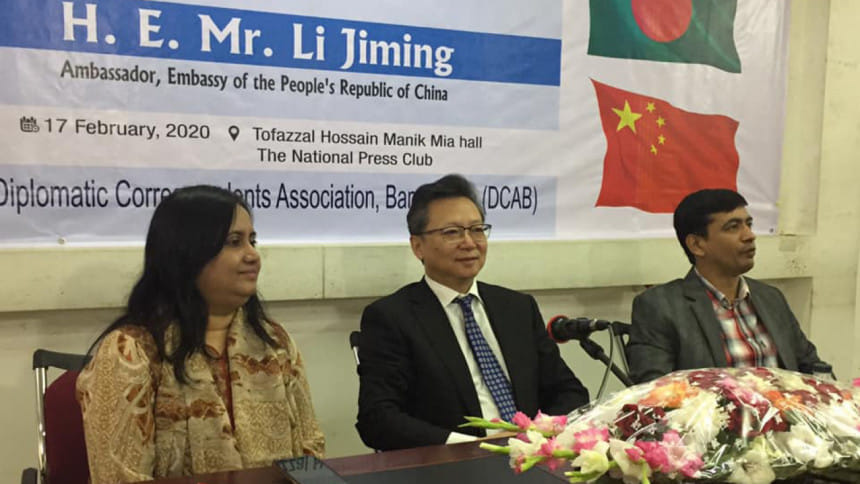Chinese envoy compares Bangladesh-Myanmar tension to 'couple's tiff'

Chinese Ambassador to Bangladesh Li Jiming has apparently downplayed the Rohingya crisis as he compared Bangladesh-Myanmar tension over the issue with a quarrel of a couple.
He said there is a Chinese saying that goes: "If a couple quarrels and goes to someone else and tries to settle the dispute, that could be a problem."
"If they can settle the problem between them, it never becomes too serious. That's the basic idea of China," he said while addressing DCAB (Diplomatic Correspondents Association of Bangladesh) Talk at the Jatiya Press Club yesterday.
A journalist then suggested that the Rohingya crisis involving Bangladesh and Myanmar should not be considered a domestic issue as seen by the ambassador.
The journalist pointed out that Rohingyas fled to Bangladesh after Myanmar military killed many of them. Bangladesh took the matter to an international platform only after becoming a victim of the crisis.
In response, Jiming said he agreed to the journalist's view.
At the programme, journalists repeatedly asked a question: Why China has been protecting Myanmar which is accused of genocide against the Rohingyas and is now facing a genocide case filed with the International Court of Justice (ICJ).
The ambassador said China too wanted a solution to the crisis, but emphasised on finding it through bilateral discussions between Bangladesh and Myanmar.
Fleeing military crackdown in Rakhine, some 750,000 Rohingyas took shelter in Bangladesh since August 2017. Since the beginning, China has been seeking a bilateral solution to the issue, although UN investigators said the crackdown had genocidal intent.
UN Security Council has not taken any concrete actions against Myanmar amid opposition from China and Russia, which hold veto powers.
Jiming said since the ICJ was still working on the case, he would not make any comment, except that the ICJ decision should be fully respected.
He said Bangladesh and Myanmar are good friends and as a friend of both the countries, China is trying to help solve the problem.
"If two neighbors are quarrelling, as a friend, you probably try to stop the quarrel and try to calm down the neighbours … In the international platforms, we are not trying to protect anyone. We are just trying to calm down those neighbors."
He said if Myanmar was pushed too hard, there would be some misunderstandings. Since Myanmar faced pressure from Western countries for many years, its people have some fundamental reactions of resistance to pressure, Jiming said.
"They [Bangladesh and Myanmar] are like brothers and sisters … they are good neighbours. They don't have to go somewhere else to solve the problem."
China, as a friend of both Myanmar and Bangladesh, wants to help, he said, adding that China wants immediate stoppage of further violence in Rakhine state, speeding up of Rohingya repatriation from Bangladesh and economic development in Rakhine.
"We are working on it," Jiming added.

 For all latest news, follow The Daily Star's Google News channel.
For all latest news, follow The Daily Star's Google News channel. 



Comments